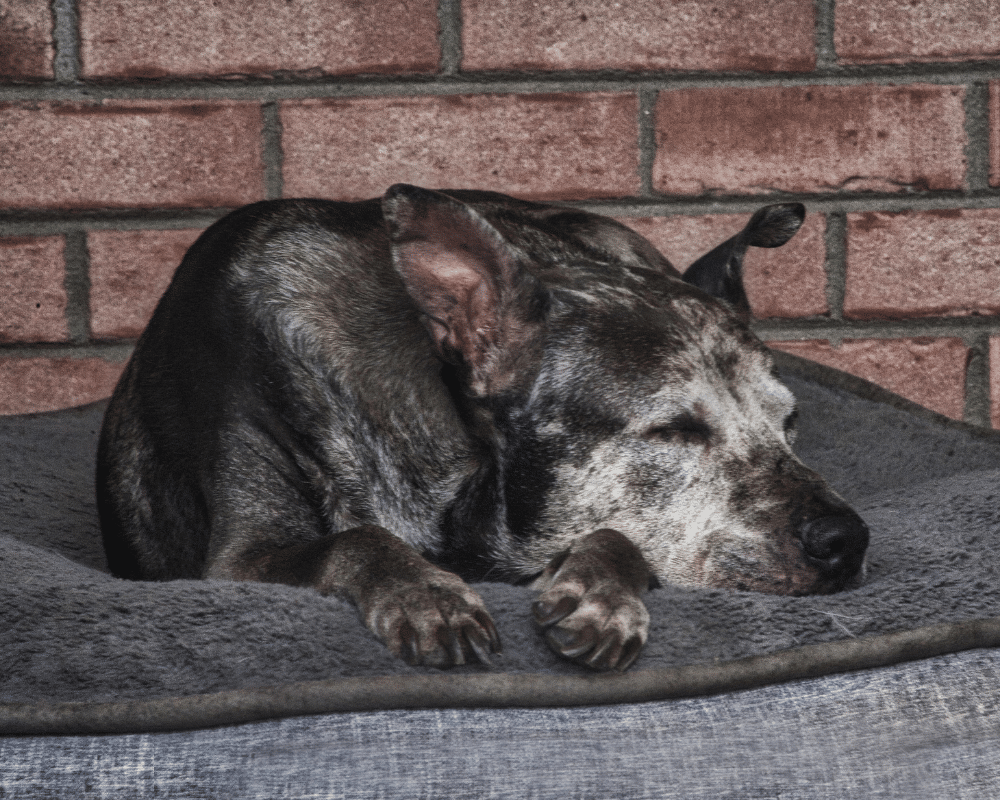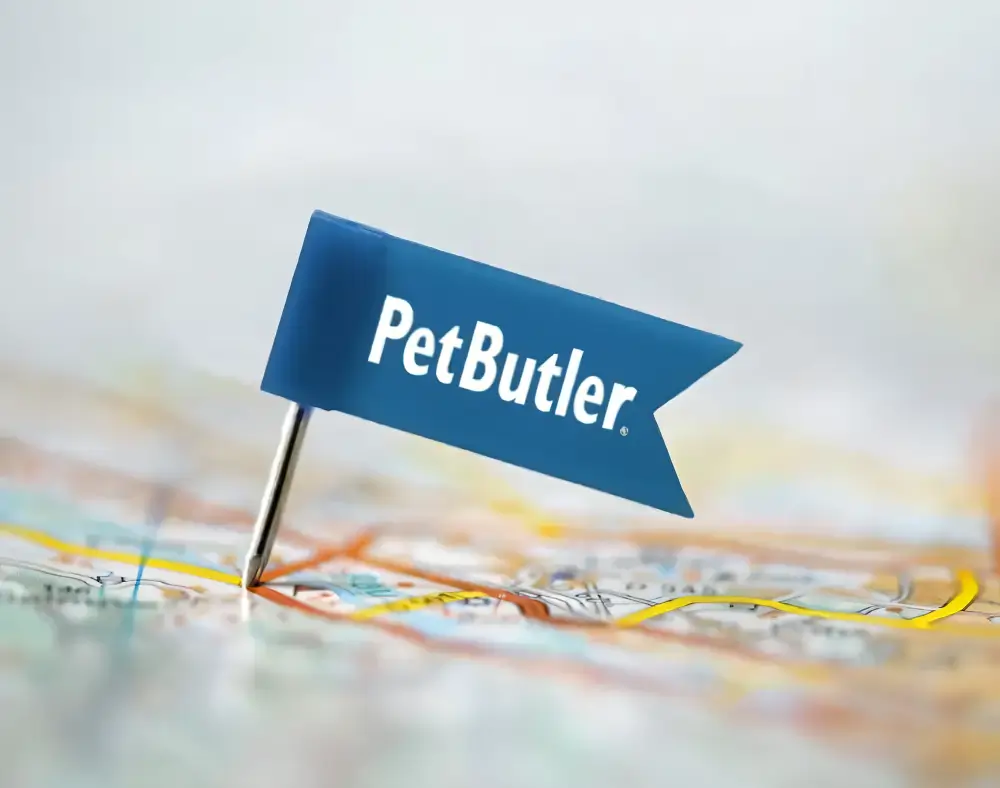Much like people, our beloved furry friends experience physical decline as they age. Because of this, they are more likely to gain weight as they get older.
Perhaps you’ve seen the pounds adding on as your pet ages despite maintaining the same feeding, walking and general health routines you’ve followed for years. It can be frustrating and confusing seeing your pet travel down this road. You might question why it’s happening and what you can do about it.
Why Senior Pets Gain Weight
It’s valuable to understand the variety of health complications that can arise as your pets grow older and their role in this challenging subject. Many times, weight gain in senior pets is caused by a purely medical reason. Among a few medical ailments, two of the most common illnesses we see in older pets surrounding weight gain are hypothyroidism and hyperadrenocorticism (Cushing’s disease).
Hypothyroidism
Hypothyroidism is a condition wherein your pet’s thyroid gland, a gland that produces metabolism-controlling hormones, is underactive. When the thyroid produces too little of these metabolic hormones, weight gain and other symptoms can develop. It’s especially prevalent in larger dogs.
Cushing’s disease
Cushing’s disease impacts the body in a similar manner. With this endocrine disorder, often caused by overmedication, too much cortisol is being produced or administered to your pet. This steroid also controls metabolic rates and other bodily functions and can result in systemic weight gain.
Arthritis
Arthritis is also prevalent in older pets. Carrying extra weight compounds the stress on joints making movement more painful, decreasing the ability to exercise and causing more weight gain. Ouch!
Heart or respiratory disease
Heart or respiratory disease can cause your senior pet to gain weight. It can decrease your dog’s exercise tolerance making weight loss an even greater uphill battle.
Weight Loss Tips for Senior Dogs
The bottom line is that these weight-related issues often arise secondary to other factors, and it’s best to seek assistance from your trusted pet professionals to understand exactly what changes are happening to your pet. Fortunately, there is a myriad of ways you can support your pet in their later years, like changing feeding and exercise behaviors and treating any underlying health concerns.
Assess your pet’s food
In addition to determining appropriate caloric intake, look at the nutritional breakdown of the food you’re providing your companion. You’ll want to purchase premium adult formulas, watching out for artificial additives, preservatives and other chemicals that might be thrown into the mix.
For older dogs, look for products that are high in protein, medium in fat and low in carbohydrate composition. Protein strengthens the immune system and supports the central nervous system, benefits of which are highly valuable to our aging pets.
Monitor water intake
On a similar note, it’s important to monitor the amount of water your pet is drinking. If you’ve noticed an excessive intake of water by your aging pet, this could be indicative of liver, kidney or endocrine disease. As with anything, moderation is key. Too much or too little intake of fluids should raise concern and should be discussed with your veterinarian.
Maintain an exercise routine
In an ideal world, your pet’s exercise behaviors and general activity shouldn’t decline as they age. For dogs, two 30-minute walks a day should be a part of your daily routine. If that’s not the case, incorporate walks or find other ways to exercise your dog’s body and mind. Not only will this combat aging-induced weight gain, but it will also enhance their metabolism and provide mental stimulation.
If your pet is struggling to keep up while exercising, start with shorter, slower walks with plenty of breaks so they can catch their breath. Make sure the ambient temperature is comfortable for your dog, too. Incorporate some hills and bursts of speed as they build strength and duration.
A great alternative to walking for older dogs is swimming. Not only is swimming a full-body workout but it’s also easier on their body, specifically their joints. As a low impact, non-weight bearing form of exercise, swimming is a fantastic way of elevating metabolism, decreasing inflammation and enhancing circulation in your pup. There’s no shame in putting your dog in a life vest for safety, as doggy paddling isn’t an inborn ability!
Feeding your senior pet the proper food for their age, breed and lifestyle and maintaining an exercise routine can be the answers to helping your fur-ever friend lose necessary weight; however, it’s important to remember that weight gain in older pets can be caused by underlying health issues.
Obesity in senior pets can be linked to hypothyroidism, hyperadrenocorticism (Cushing’s disease), arthritis, respiratory challenges, heart disease and a slew of other issues. If you’re concerned about behavioral and physical changes in your older pet, don’t hesitate to reach out to your veterinarian. Put your worries to rest and find the best ways to support your pet.
At Pet Butler, we want you to be able to focus on your pet’s health and livelihood. Let us take care of the dirty work. We offer poop scooping services that can occur weekly, every other week or monthly. We even offer cleanup for a special occasion, party or holiday weekend.

